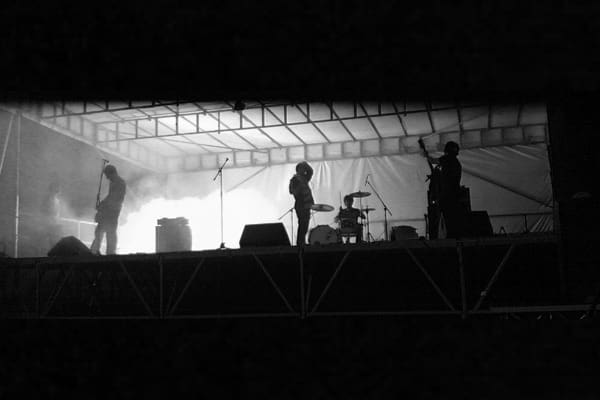Screamo is a polarising and often mislabelled genre, with its fair share of stans and online communities who are passionately committed to debating the genre. To define screamo: it is an extreme form of hardcore punk most notably associated with its screeching vocals, distorted guitars, frenetic drumming and emotional lyrics. While screamo is traditionally understood as consisting of the various East and West Coast American acts of the late 1990s and early 2000s — including Heroin, Orchid, Pg. 99 and Jeromes Dream — it also has a thriving scene of non-English speaking bands which are celebrated both abroad and within the Anglosphere.
From Raein in Italy, to Daïtro in France, Envy in Japan, Piri Reis in Malaysia and Corea in Spain, screamo has spread globally, establishing important scenes well beyond the stretches of American hardcore’s musical hegemony. This hegemony is a result of the United States’ importance in establishing various forms of hardcore and punk. While other forms of hardcore and punk have significant scenes globally, many of the acts that are from beyond the Anglosphere are still entrenched in Anglocentricism, with many tending to only use English vocals because of the mass influence of music from the Anglosphere, with English-speaking listeners often failing to engage with non-English speaking bands. Yet, this differs in screamo, as it is one of the few smaller genres which maintains strong and active bands with non-English vocals.
So why has screamo, unlike other forms of hardcore and punk, managed to spawn so many relatively large acts outside of the Anglosphere? Most obviously, screamo usually has unintelligible vocals, English or not, as the comprehension of lyrics is often less important than in other genres. Additionally, online platforms like Bandcamp and RateYourMusic have allowed for the spread of, and increased support for, non-English bands, which is only reinforced by the passionate degree to which most screamo fans are invested in the genre.
Screamo, like most forms and offshoots of hardcore and punk, is heavily invested in ‘the scene’ and its emphasis on the direct support of artists, many of whom rely on the communal support of fans to purchase their merch and music. Screamo bands need this support to release music, as the less-accessible nature of the genre limits the extent to which they can rely on popular and commercial success to support themselves.
The passion of screamo fans for the genre also urges listeners to delve deeper within the genre itself, with the depths of RateYourMusic acting as a platform through which this exploration can take place. This can notably be seen on the genre chart of screamo on RateYourMusic where numerous non-English acts are within the top 50 albums, a stark contrast to most other genres found on the site. There are also numerous albums lists on RateYourMusic about foreign language screamo, from lists comprising various Japanese and Ex-Yugoslavian screamo acts to lists written by Spanish-speaking users for other Spanish-speaking users. This cultivation of non-English screamo, and screamo more broadly, is celebrated on these platforms within both English and non-English speaking circles.
The significance of non-English screamo has found itself not only within its engagement by listeners and fans of the genre, but also in the influence that many non-English bands have had in encouraging the use of native languages by other screamo bands outside of the Anglosphere. The Malaysian act Daghlia claim on their Bandcamp that they “took the foundation laid by the bands that ruled euro in the mid 90’s”, while another Malaysian act, Piri Reis, state that they are “definitely influenced by European screamo” — referring to the tradition of Italian, French, and Russian screamo which developed in the late 1990s and early 2000s. It is clear that the spread of non-English screamo has inspired and supported other artists outside of the Anglosphere to create their music outside of the English-language hegemony of hardcore music.
The communal and passionate nature of screamo scenes has allowed for the creation, proliferation and promotion of non-English language bands, and has allowed for the empowerment of non-English language artists despite the less accessible and uncommercial nature of the genre. It’s important that we consider and explore screamo as a niche art which defies the traditional norms of the Anglosphere and of the US hardcore hegemony. In our increasingly globalised world, screamo acts as a beacon proving that alternative non-English art and media can gain traction outside and within the Anglosphere, beyond the few hyper-commercial and capital driven cultural artefacts which have pierced English-speaking capitalist culture, like K-Pop and reggaeton.





